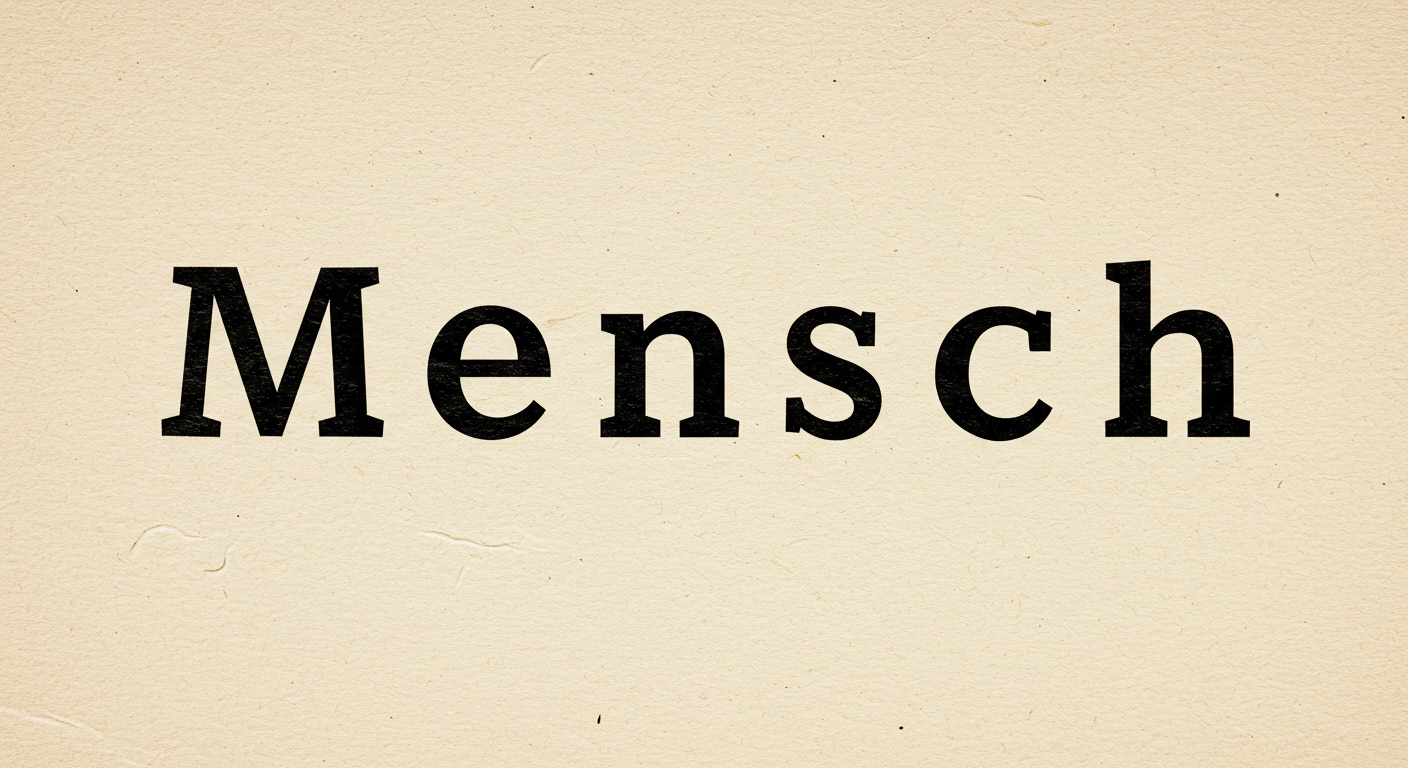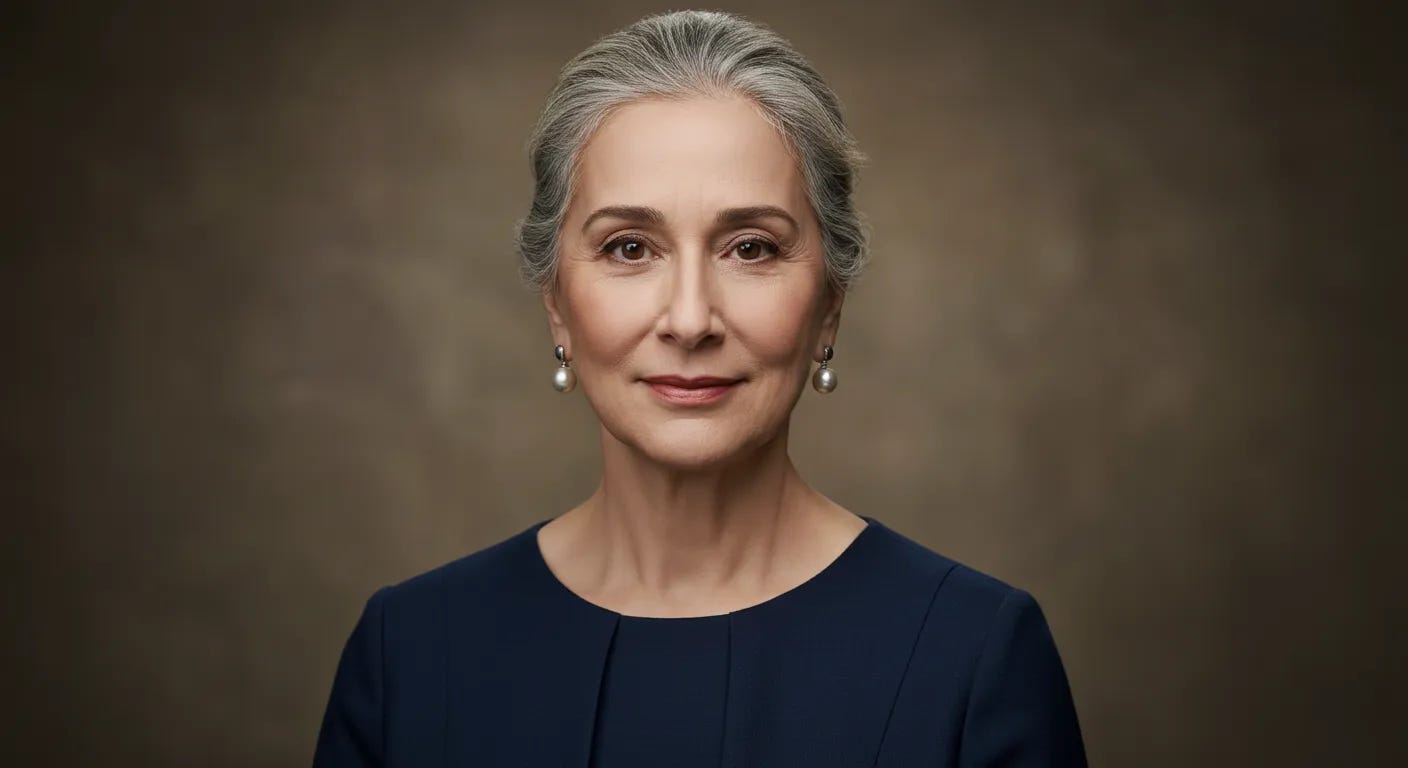Editor’s Note:
Well, being a mensch has struck a very nice chord based on the universal response I received. We take it a step further in this issue of OBS Post and go into the etymology and origins of the word and concept. Please enjoy this deep dive into the meaning of mensch. In the next issue, we take a look at how to be a mensch in ten easy lessons!
Lv,
Larry
Etymology and Origins
The word "Mensch" comes from Yiddish, a historical language of Ashkenazi Jews that developed in Central Europe around the 10th century CE. Yiddish itself blends Middle High German with Hebrew, Aramaic, and elements of Slavic and Romance languages. "Mensch" is directly derived from the German word "Mensch," which simply means "human being" or "person."
The German word comes from Old High German "mennisco," which can be traced further back to the Proto-Germanic "*manniskaz," meaning "human." This ultimately connects to the Proto-Indo-European root "*man-" (person). The same linguistic root gave us the English word "man" (in its original sense of "human being" rather than specifically male).
Semantic Evolution
While "Mensch" in German retained its straightforward meaning of "human being," the Yiddish usage evolved to take on profound ethical dimensions. In Yiddish culture, a "Mensch" came to represent not just any person, but a person of integrity and honor, someone who embodies the highest virtues of what it means to be human.
This semantic evolution reflects a central aspect of Jewish ethical thought: the idea that to be truly human means to fulfill one's moral responsibilities toward others. It's not enough to simply be human biologically; one must act with humanity.
Cultural Significance in Jewish Tradition
In Jewish culture, being called a "Mensch" is considered one of the highest compliments one can receive. It represents a person who has fully realized their human potential through ethical conduct.
The concept aligns with core Jewish values like:
Tzedakah (charity and justice)
Gemilut Hasadim (acts of loving kindness)
Kavod HaBriyot (respect for all creatures)
Derech Eretz (proper conduct, literally "the way of the land")
Rabbinical literature often emphasizes that being a Mensch supersedes mere religious observance. As the ancient Jewish sage Hillel famously summarized the Torah while standing on one foot: "What is hateful to you, do not do to your fellow. This is the whole Torah; the rest is commentary. Go and learn."
Rabbi Samson Raphael Hirsch (1808-1888) emphasized that the highest goal in Judaism isn't to be an angel but to be a Mensch—to fully realize one's human potential through ethical behavior toward others.
Characteristics of a Mensch
While there's no definitive checklist for being a Mensch, traditional understandings include several key qualities:
Integrity: A Mensch's word is their bond; they do what is right even when no one is watching
Responsibility: A Mensch takes responsibility for their actions and for helping others
Dignity: A Mensch treats everyone with respect and preserves their dignity
Compassion: A Mensch responds to suffering with empathy and action
Humility: A Mensch doesn't seek praise or recognition for doing what is right
Wisdom: A Mensch exercises good judgment and learns from experience
Fairness: A Mensch acts justly and stands up against injustice
Migration into American English
"Mensch" is one of the Yiddish words that successfully migrated into American English vocabulary, particularly in the mid-20th century. Like other Yiddish loan words ("chutzpah," "schlep," "kvetch"), it filled a semantic gap by expressing a concept that didn't have a perfect English equivalent.
The word gained wider recognition beyond Jewish communities as public figures began using it in mainstream contexts. By the 1980s and 1990s, "Mensch" had become recognized even in non-Jewish circles as a term of high praise for someone of noble character.
The linguist Leo Rosten, in his classic work "The Joys of Yiddish" (1968), defined a Mensch as "someone to admire and emulate, someone of noble character. The key to being 'a real mensch' is nothing less than character, rectitude, dignity, a sense of what is right, responsible, decorous."
Mensch vs. Similar Concepts
The concept of a Mensch has parallels in many cultural traditions, though with significant nuances:
Unlike the English "gentleman," which historically had class associations, "Mensch" is about character regardless of social standing
Unlike "saint," which can imply otherworldliness, a Mensch is firmly grounded in everyday human interactions
Unlike "hero," which suggests extraordinary acts, a Mensch embodies integrity in ordinary daily life
Unlike concepts of "politeness" or "manners," being a Mensch goes far deeper than surface behaviors to core ethical commitments
Contemporary Relevance
In today's fragmented society, the concept of the Mensch remains powerfully relevant. It represents a universal ethical ideal that transcends cultural, religious, and political divisions. The Mensch ideal speaks to fundamental human values that most people across the spectrum would recognize as worthy:
Taking responsibility for one's actions
Treating others with dignity and respect
Standing up for what is right
Showing compassion to those in need
Maintaining integrity in word and deed
Contributing positively to community
As such, the concept offers a potential bridge across divides—a shared understanding of what it means to be a good human being that doesn't depend on particular religious doctrines, political ideologies, or cultural backgrounds.
Gender and the Modern Mensch
Traditionally, "Mensch" was used primarily for men, with terms like "fremme yidene" (pious Jewish woman) sometimes used as a female counterpart. However, in contemporary usage, particularly in English, "Mensch" has largely become gender-neutral. Today, people of any gender can be described as a Mensch when they embody the qualities of integrity, compassion, and responsibility.
This evolution parallels how other historically gendered terms for virtue (like "gentleman" or "lady” have either been reimagined or supplemented with more inclusive language. The Mensch concept has proven particularly adaptable because its core meaning transcends gender—it's about being a fully realized human being rather than fulfilling gender-specific roles.
The Mensch in the Digital Age
The qualities of a Mensch may be even more essential in our digital era. Online environments often create a sense of anonymity and distance that can erode accountability and empathy. The Mensch brings timeless ethical principles into these new contexts:
Maintaining integrity in online interactions
Taking responsibility for one's digital footprint
Treating others with dignity even through digital platforms
Standing up against cyberbullying and online harassment
Being thoughtful about how shared content affects others
Using technology to expand rather than diminish human connection
The Universal Mensch
While the term comes from Jewish tradition, the concept of the Mensch represents universal human virtues recognized across cultures. It articulates an ethical ideal that resonates far beyond its origins—the aspiration to fully realize what it means to be a good human being.
The Mensch embodies what philosophers might call "virtue ethics"—the idea that character and virtue, rather than just following rules or calculating consequences, are central to ethical life. In this sense, the concept joins timeless ethical traditions from around the world in emphasizing the development of character as essential to a good human life.
In an era often characterized by division and self-interest, the Mensch represents a powerful counter-ideal: the person who lives with integrity, takes responsibility for others, and contributes to a more compassionate world through everyday actions. It's an ancient concept with urgent contemporary relevance—a vision of fully realized humanity that speaks to our deepest aspirations across cultural boundaries.














I love this thoughtful and in depth description. My last name is Muench and we like to pronounce it as “Mensch” :)